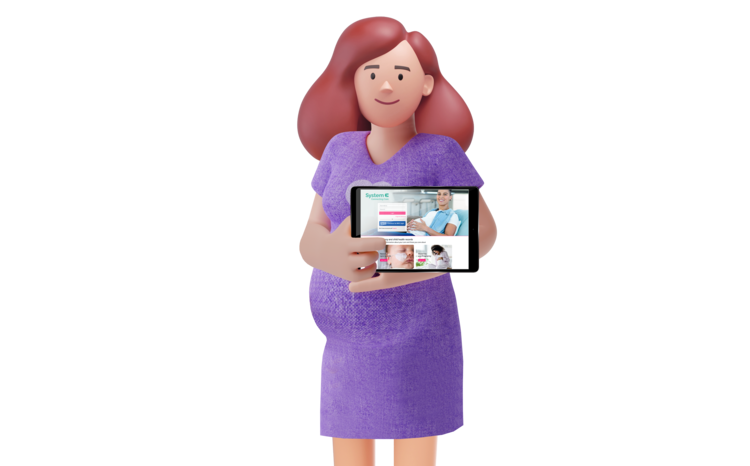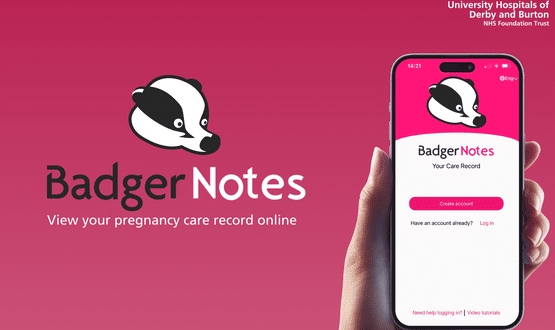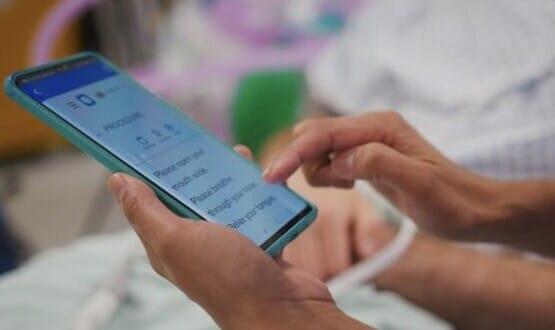eRedbook to be introduced across London

From April, parents of the 136,000 babies born across London each year will be able to begin to record and manage information about their child’s health and development online or by smart phone.
The NHS will start roll-out a digital version of the Redbook familiar to all mothers, beginning with London, in the first phase of a five-year programme to develop integrated child health records across England.
Parents will be able to record and manage information about their child’s health and development using an online personal child health record (PCHR).
Expectant mothers will be able to start using the app from 28 weeks pregnant, rather than waiting until their baby is born, allowing them to learn about their baby’s development milestones, before the baby arrives.
The initiative builds on earlier pilots in Newham, Greenwich, Kingston, Inner North West London and Barnet.
Daniel Moulin, eRedbook lead at SiteKit, told Digital Health News that there are 277 active users to date, and an increase in numbers “all depends on how quickly we can engage midwifery services across London”.
Sarah-Jane Marsh, chair of NHS England’s Maternity Transformation Programme Board, said: “In an increasingly digital world, parents rightly expect the NHS to offer the technology they use in their day to day lives, and the eRedbook is an excellent example of how we are working with other NHS organisations in London to make this expectation a reality.”
The project forms part of the Child Digital Health programme being delivered by NHS Digital, with SiteKit the supplier of a PCHR. By developing an open interoperable approach it is hoped that a market will emerge with multiple suppliers offering PCHR applications.
The traditional paper Redbook is the personal health record given to all new parents to manage their child’s health between 0-5 years that has been in use for over 50 years.
The new eRedbook, includes information on immunisations, weight and height charts, developmental firsts and important contacts. It also contains practical, personalised information for new parents, including links to relevant videos and information from local sources.
Other key features include automatic plotting on weight and growth charts. NHS Engand says the digital charts are less error-prone than paper charts, as data is plotted automatically, including the pre-term correction, which is also automated.
The PCHR also includes appointment updates and reminders, which in the future may be extended to replacing appointment letters.
Moulin described the roll-out as “a great opportunity for us to start showcasing the benefits of an untethered personal health record”, with benefits including clinicians collaborating over different services, access to information and encouragement to patients to manage their child’s health online.
Moulin said in early summer screening data and immunisation data will be available London wide.





8 Comments
Sounds interesting…is it true you have to open a Healthvault account via Microsoft before actually accessing the Eredbook…which I assume would mean data sharing with Microsoft?
Whilst I appreciate the electronic version has advantages for patients it still seems to require the duplicate entry of information which is a bugbear of the paper version.
When I see a child I am expected to produce clinical notes in the GP record but then duplicate them in the redbook. In the case of child health checks and immunisations I am also required to send a copy of the entry so the central records can be updated. Given that the mother can opt for dual paper and electronic redbooks, this may become triplication. What is being done to reduce this administrative burden?
Julian,
eRedbook does have interoperability capabilities and have been working with the Digital Child Health Strategy team at NHS England and NHS Digital to automate information flows in London. Over the coming months the data already recorded by clinicans into existing systems will start flowing into eRedbook to avoid unnecessary duplication.
Fantastic news how can other areas be involved in the role out
Please get in touch through https://www.eredbook.org/contact/
A good question David.
Yes the parent could continue using eRedbook as a standalone service. If a parent does moves out of the London to an area local providers have not on boarded eRedbook and integrated with local data feeds, parents could copy information provided by providers in a paper version or revert back to paper.
In the meantime we will look forward to other regions collaborating to with the work in London so parents can move seamlessly over borders.
Welcome to the federal NHS. Other professional bodies – eg GMC, GDC, RCN – don’t create standards and tools for their members based on location but our area of expertise does.
Beverley Bryant thinks that’s ok https://www.digitalhealth.net/2017/03/beverley-bryant-says-nhs-digital-needs-cultural-transformation/
Neil Paul doesn’t https://www.digitalhealth.net/2017/04/another-view-neil-paul-21/
Draw your own conclusions,
Love this, can’t wait for it to be national.. Stupid Question Klaxon though – What happens if a patient moves out of the digital deployment zone before national role out? Obviously they will be able to access but what about the receiving provider?
Comments are closed.